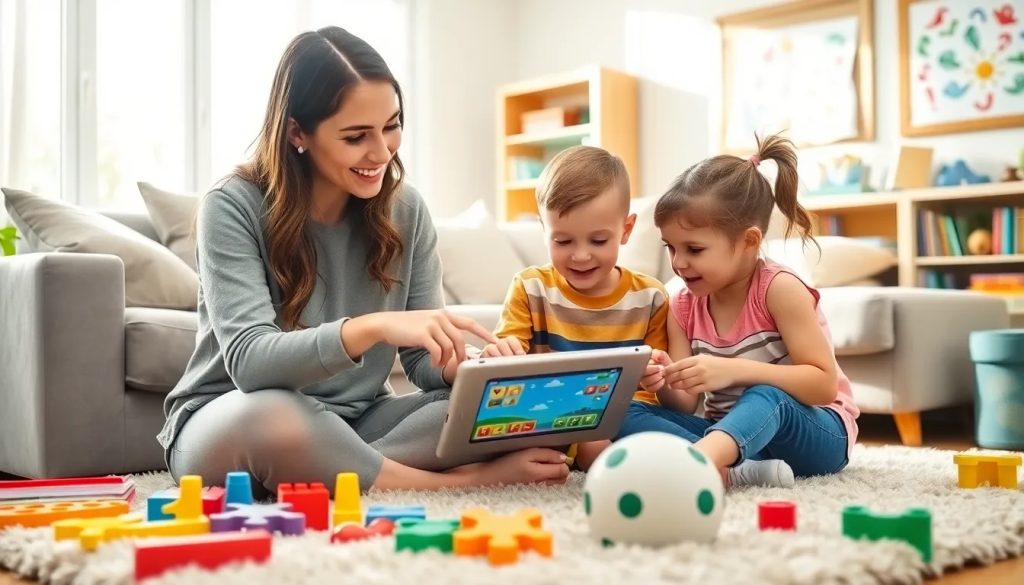How babysitters play a crucial role in protecting kids online cannot be overstated. As digital technology becomes an integral part of children's lives, understanding online safety is more important than ever. The role of babysitters extends beyond just supervision; they must also be equipped to guide children in navigating the complexities of the internet.
In this article, we will explore various aspects of online safety tailored to babysitters, covering the dangers children face, along with practical strategies and tips.
How babysitters protect kids online
Babysitters are often the primary caregivers for children when parents are away, making them responsible for safeguarding kids in the digital realm. They can implement essential strategies to ensure children's safety online. One effective approach is to foster an environment of open communication. Encouraging kids to share their online experiences helps babysitters identify potential risks early.
Additionally, babysitters should continuously educate themselves about the latest online trends and threats. This knowledge enables them to proactively address issues such as cyberbullying and inappropriate content. Moreover, setting clear rules regarding internet usage can help manage children’s online behavior effectively.
To further enhance protection, babysitters can utilize parental control apps that limit access to harmful sites. These tools are crucial in creating a safe online environment while allowing children to explore age-appropriate content.
What are the main dangers online for kids?
Understanding the main dangers online is vital for babysitters to effectively protect children. The internet is rife with risks, including:
- Exposure to inappropriate content
- Cyberbullying
- Online predators
- Privacy threats
- Digital footprint concerns
Each of these dangers can have serious implications for a child's mental and emotional well-being. For instance, exposure to violent or sexual content can lead to behavioral problems and addiction. Children are often unaware of the potential consequences of their online actions, making it critical for babysitters to educate them.
Cyberbullying, another prevalent issue, can significantly affect a child's self-esteem and mental health. Babysitters should be vigilant in recognizing signs of bullying and addressing them promptly. By understanding these threats, babysitters can better prepare themselves and the children they care for to navigate the online world safely.
How to keep your child safe on social media?
Social media platforms are popular among children, presenting both opportunities and risks. To keep children safe on social media, babysitters can implement the following strategies:
- Set privacy settings: Ensure that children’s accounts are set to private to limit visibility.
- Monitor friend requests: Teach kids to be cautious about who they accept as friends.
- Educate about sharing: Discuss the importance of not sharing personal information or location.
- Encourage reporting: Make sure children know how to report inappropriate content or behavior.
- Foster open dialogue: Maintain regular conversations about their online interactions.
By implementing these practices, babysitters can help children enjoy social media while minimizing risks. Open communication is key; children should feel comfortable discussing their online experiences without fear of reprimand.
What are 10 internet safety tips for kids?
To enhance children's internet safety, babysitters can introduce them to the following essential tips:
- Use strong, unique passwords and change them regularly.
- Avoid sharing personal information online, such as home addresses or phone numbers.
- Be cautious about clicking on links or downloading files from unknown sources.
- Use pseudonyms instead of real names in online profiles.
- Limit screen time and take regular breaks from devices.
- Encourage children to think critically about the information they find online.
- Teach them to recognize and avoid phishing scams.
- Discuss the importance of keeping their devices updated with the latest software.
- Remind them to avoid engaging in online arguments or negative interactions.
- Encourage them to come to you with any uncomfortable online experiences.
These internet safety tips are crucial for children to develop a strong understanding of how to navigate the digital world safely. Babysitters should regularly review these tips to ensure that children remain aware of potential threats.
How to protect children from inappropriate internet content?
Protecting children from inappropriate internet content requires a multi-faceted approach. Babysitters can take the following steps:
1. Utilize content filters: Many browsers and devices have settings that block harmful content. Familiarizing oneself with these features can significantly reduce potential exposure.
2. Educate about the risks: Conversations about inappropriate online content can empower children to make safer choices. Discuss the types of content that are harmful and why they should be avoided.
3. Regularly review browsing history: Monitoring what children watch online helps babysitters stay informed about their interests and any risky content they may have encountered.
4. Encourage safe searches: Teach children to use safe search engines specifically designed for kids, which filter out inappropriate material.
5. Promote responsible behavior: Remind children to come to their babysitters or parents if they stumble upon something unsettling. Creating a safe space for discussions can help children navigate their online experiences more safely.
By implementing these strategies, babysitters can significantly reduce children's exposure to inappropriate content.
Understanding the digital landscape children navigate today
Today's children are exposed to an ever-evolving digital landscape filled with opportunities and challenges. With platforms like TikTok, Instagram, and gaming sites like Roblox, children are constantly interacting with peers and content.
As babysitters, it is crucial to understand how these platforms work and the specific dangers they present. Being aware of trending apps and games allows babysitters to better relate to children and guide them effectively.
Moreover, babysitters should educate children about their digital footprints. Everything shared online can potentially impact their future. By teaching children the importance of maintaining a positive digital identity, babysitters can help them make informed decisions about what to post.
Finally, encouraging children to think critically about their online interactions and the content they consume is vital. Critical thinking skills can empower them to navigate the digital world more safely and responsibly.
Creating a healthy digital dialogue with your children
Establishing a healthy and open dialogue about digital topics is essential in fostering online safety. Babysitters should feel comfortable discussing various aspects of internet use with the children they care for.
Some methods to create this dialogue include:
- Asking open-ended questions about their online activities.
- Sharing personal experiences with technology and online interactions.
- Encouraging children to express their feelings about what they see online.
- Discussing the consequences of sharing personal information.
- Promoting conversations about their favorite apps and games, highlighting both positives and negatives.
By creating a space where children feel safe to discuss their online experiences, babysitters can help them navigate challenges more effectively. This approach not only builds trust but also prepares children to handle future online threats.
Related questions about online child safety
Questions related to how babysitters can protect kids online
What should be done to protect children online?
To protect children online, several proactive measures can be implemented. Regularly educating children about internet safety, such as recognizing suspicious behavior and avoiding oversharing, is essential. Establishing clear guidelines for internet usage can also help mitigate risks. Parents and babysitters should work together to monitor online activities and discuss any concerns openly.
Additionally, using tools like parental controls can provide an extra layer of safety. These controls help restrict access to inappropriate content while allowing children to explore the internet safely. Regular conversations about online experiences help children feel comfortable reporting any issues they encounter.
What is the app that protects kids online?
There are numerous apps designed to enhance child safety online. Some popular ones include:
- Net Nanny: Provides real-time internet monitoring and content filtering.
- Qustodio: Offers comprehensive reporting and monitoring features across various devices.
- KidLogger: Tracks online activity and can even log keystrokes.
- Norton Family: Helps manage screen time and track children's online activities.
- Circle Home Plus: Allows parents to manage all devices connected to the home network.
These apps help babysitters and parents ensure children navigate the online world safely, providing tools to monitor their activities and establish protective measures.
How to put child safety on the internet?
Implementing child safety on the internet begins with setting clear boundaries and guidelines for online behavior. Educating children about internet dangers and encouraging open dialogue about their experiences is key. Additionally, using technology effectively, such as parental controls and monitoring apps, enhances safety measures.
Regularly reviewing and discussing online habits fosters a secure environment for children to explore the internet. Babysitters can also set up designated device-free times to encourage other activities, promoting a balanced lifestyle.
What are the 5 rules of staying safe online?
Five essential rules for online safety include:
- Never share personal information: Keep names, addresses, and phone numbers private.
- Think before you click: Be cautious about links and downloads from unknown sources.
- Be aware of privacy settings: Regularly review and adjust privacy settings on social media.
- Report suspicious activity: Always inform a trusted adult about anything unsettling encountered online.
- Keep communication open: Talk about online experiences without fear of judgment.
By instilling these rules, babysitters can empower children to navigate the internet safely and responsibly, ensuring a positive online experience.



